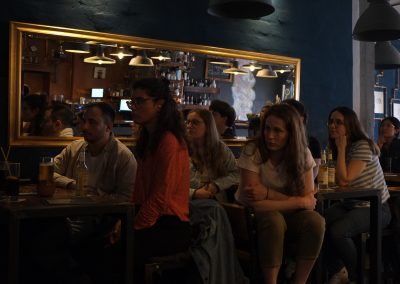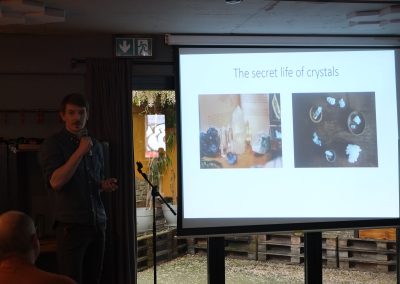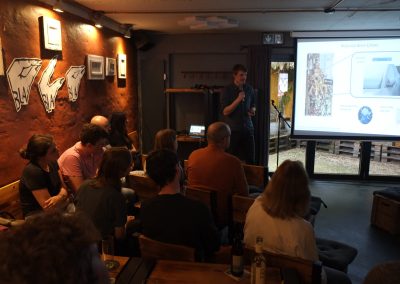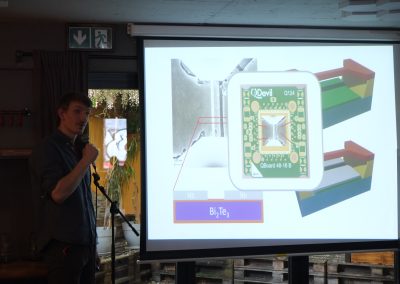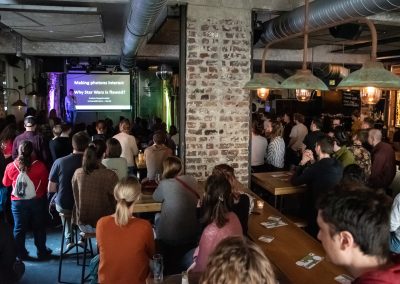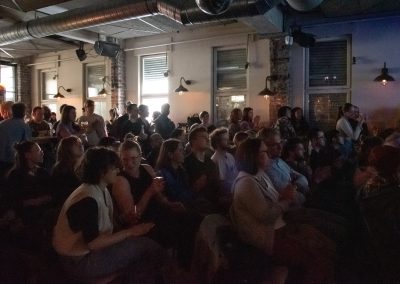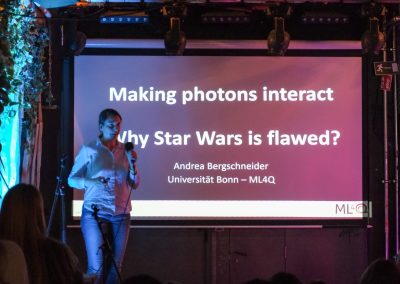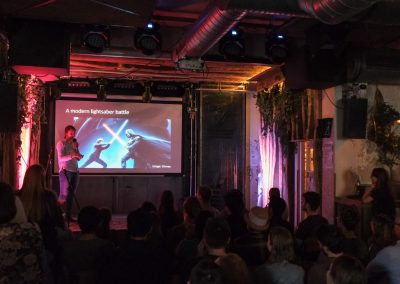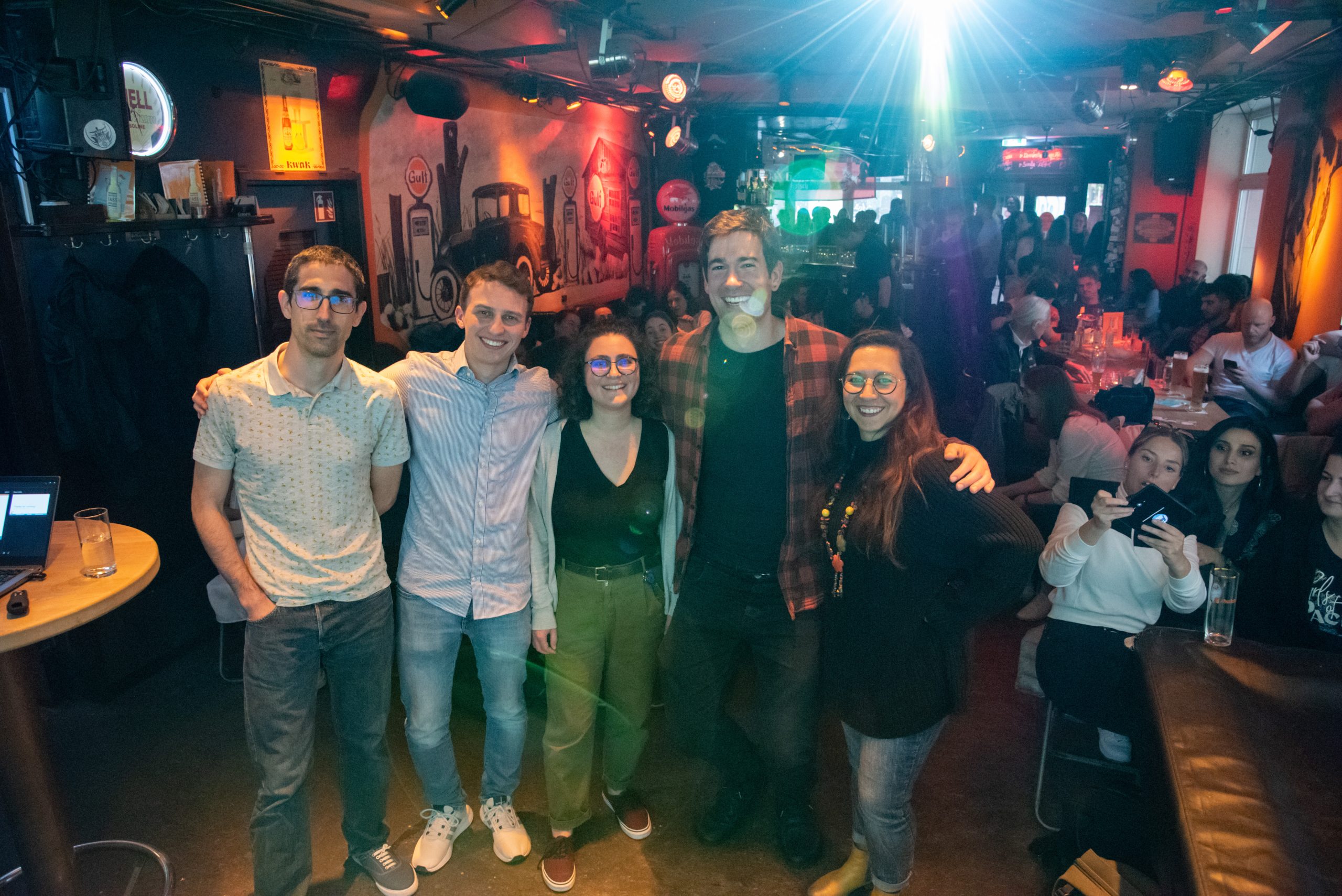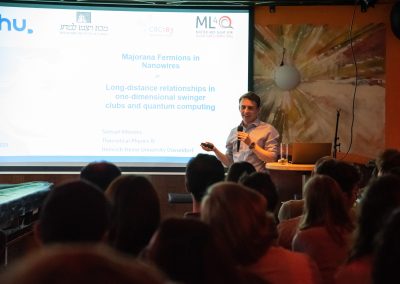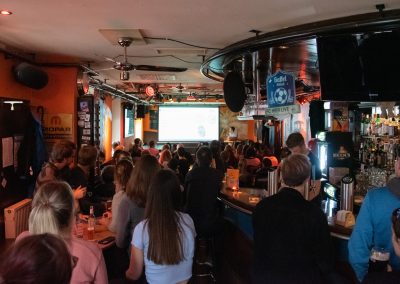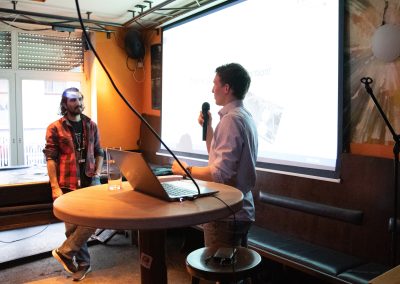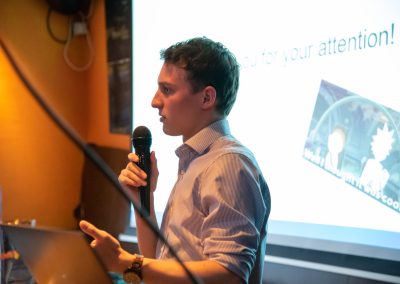For three lively evenings, the vibrant city of Cologne played host to the annual Pint of Science event in three cozy local pubs. There, over 200 science fans gathered to engage with enthusiastic researchers from various scientific disciplines, exchanging ideas and experiences over pints of their favorite beverages. The twelve thought-provoking talks presented during the event were delivered with a perfect blend of creativity and simplicity, captivating the audience’s imagination.
The diverse range of topics covered in the talks spanned microbiology, plant sciences, molecular medicine, and quantum physics, attracting a wide spectrum of individuals from different backgrounds. With a packed attendance, the pubs radiated an atmosphere of joy and excitement.
Each event featured a young scientist from ML4Q, who passionately shared insights into their research. Christoph Ringkamp kicked off the first evening, leading the audience on a journey into “The Secret Life of Crystals” creating new materials with exciting properties that work on the quantum scale.
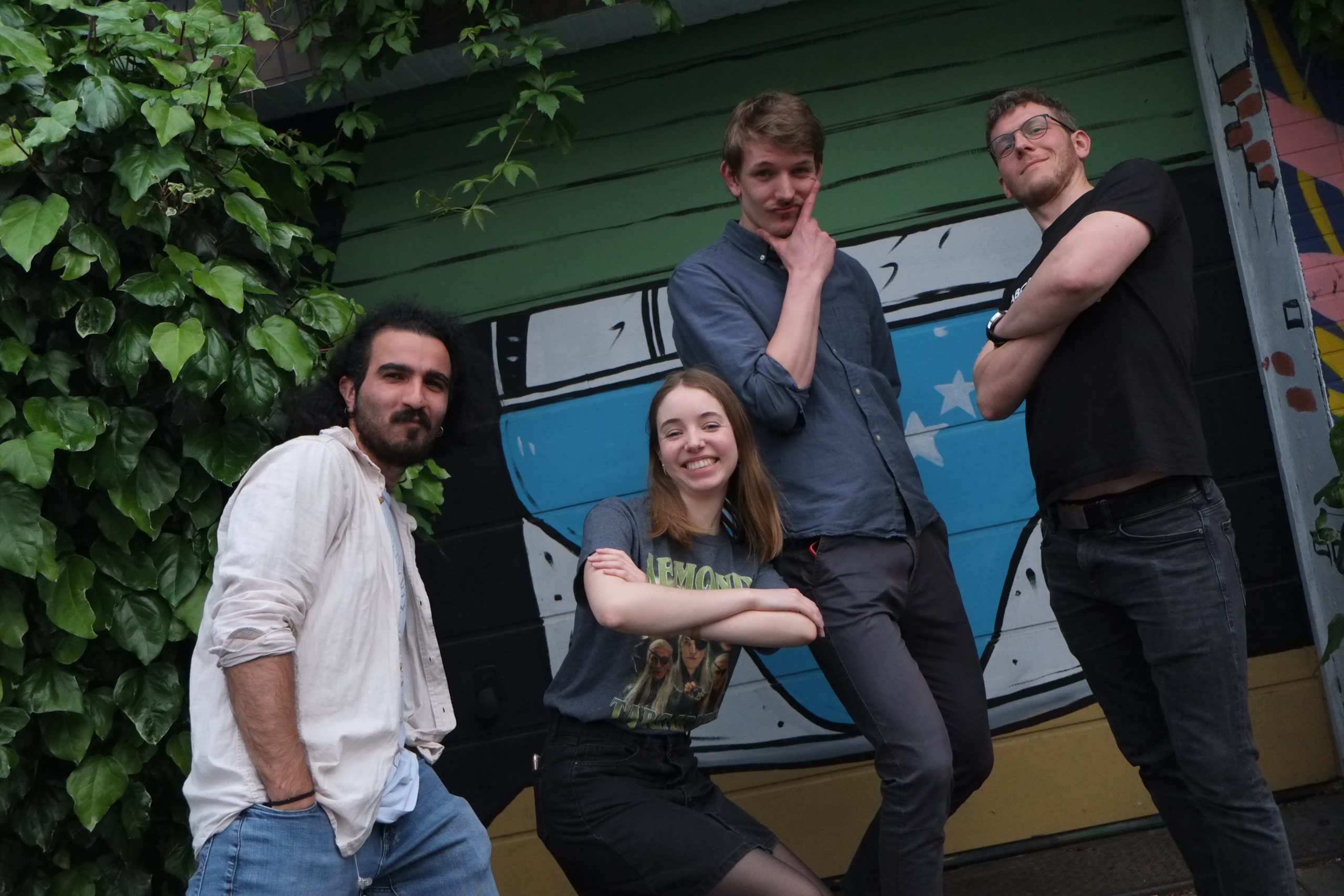
The scientists of the evening (LTR) Sadig Niftullayev, Laura Merx, Christoph Ringkamp and Philipp Katzy. Image: Jonas Klussmann
On another evening, Andrea Bergschneider posed the intriguing question, “Why were lightsabers absent in our reality?” She explained how the iconic weapons from the Star Wars saga, which use light as their source, are currently unattainable due to the non-interacting nature of photons. However, she introduced possibilities of “Making Photons Interact” through optical resonators, which are new types of particles with promising applications.
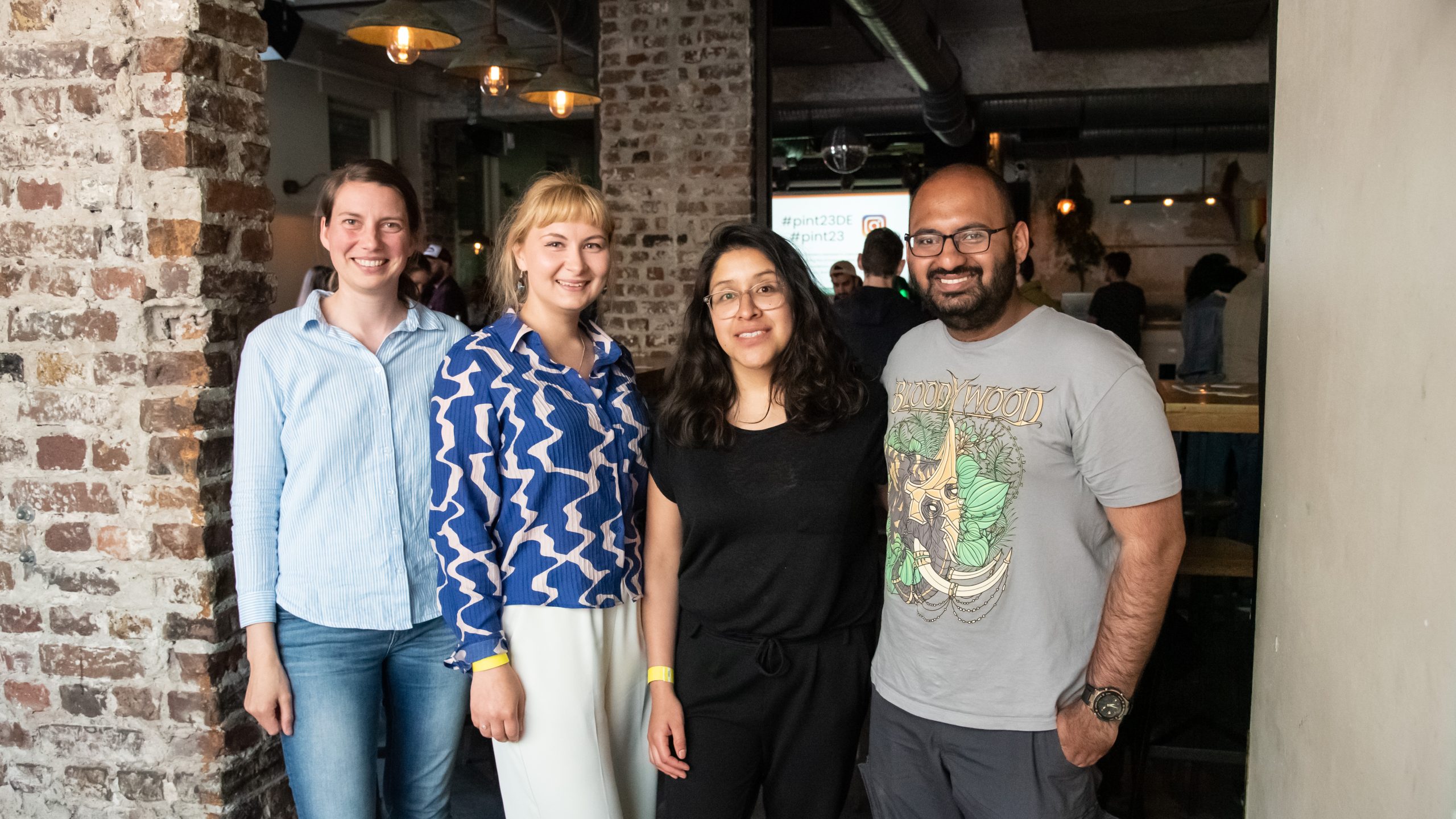
Andrea Bergschneider (left), ML4Q member and postdoctoral researcher in quantum physics and quantum optics at the University of Bonn, joins Polina Zhigulina, Abril Sosa-López and Shrihari Negi on the second day of Pint of Science – the Cologne Edition – in Bumann & SOHN. Image: Katharina Link and Jonas Klussmann
During the final evening, Samuel Morales took the audience on an intellectually stimulating journey of raveling the mysteries of Majorana qubits, using the metaphor of “Long-Distance Relationships in One-Dimensional Swinger Clubs“. Majorana qubits are potential stable building blocks for quantum computers, and realizing them brings us closer to solving mathematically complicated challenges through quantum computing.
Pint of Science is an international non-profit organization dedicated to hosting festivals that bridge the gap between local researchers and the general public. Through local pubs, bars, cafes, and public spaces, the organization fosters a unique environment where researchers can share and discuss their findings with the community. This year’s events, held from May 22 to May 24, spanned 26 different countries, with Germany alone hosting the event in 16 diverse cities, including Cologne.
